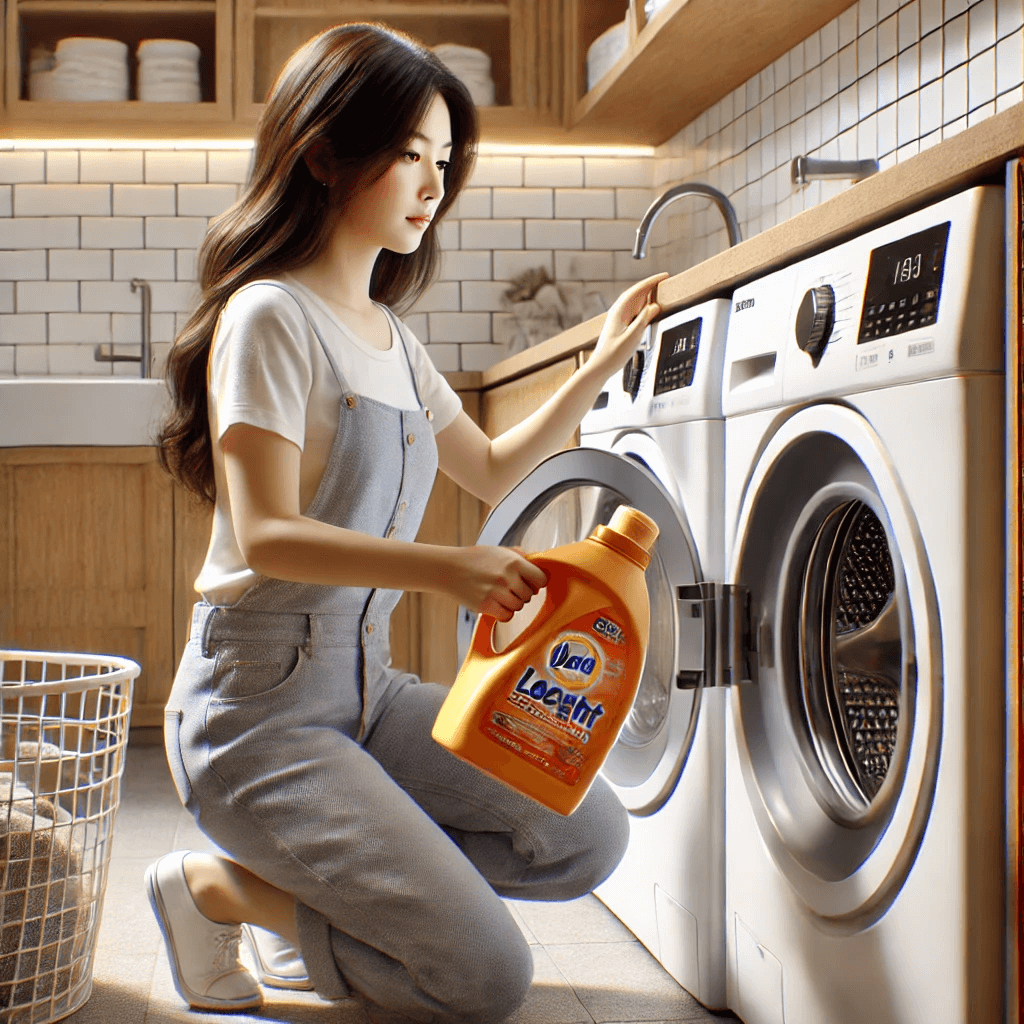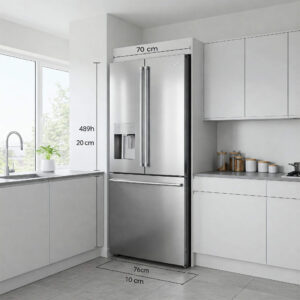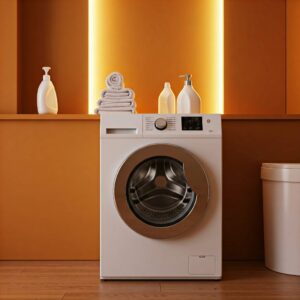When it comes to doing laundry, choosing the right detergent is as important as selecting the right washing machine. The wrong detergent can lead to ineffective cleaning, damage to your machine, and even ruin your favorite clothes. With so many options available in the market today, it can be overwhelming to figure out which detergent works best for your washing machine type. In this blog, we will introduce the different types of detergents available and explain which one is the perfect match for your machine, whether it’s a top-load or front-load washer.
- Types of Detergents for Washing Machines
- Choosing the Right Detergent for Your Washing Machine
- Eco-Friendly Detergent Options
- Conclusion
Types of Detergents for Washing Machines
Before we dive into what works best for different washing machine models, it’s crucial to understand the three main types of detergents available in the market:
- Powder Detergents
- Liquid Detergents
- Detergent Pods or Tablets
Let’s break down each type and explore their advantages, disadvantages, and how they work.
1. Powder Detergents
Powder detergents are the traditional type of laundry cleaner that have been around for decades. They come in a powdered form and are typically packaged in large boxes.
Advantages:
- Economical: Powder detergents are generally more cost-effective compared to liquid detergents and pods. If you have a large household and go through multiple loads of laundry, this is an economical option.
- Effective for Heavily Soiled Clothes: Powder detergents are particularly effective in dealing with ground-in dirt, mud, and other outdoor stains. They also work well on clothes that are heavily soiled and need extra cleaning power.
- Long Shelf Life: They tend to have a longer shelf life compared to liquid detergents, making them a good option for households that do laundry less frequently.
Disadvantages:
- Solubility Issues: Sometimes, powder detergents can have trouble dissolving completely, especially in cold water. This could leave a residue on clothes and inside the machine.
- Not Ideal for Delicates: Because of its strong cleaning properties, powder detergent can be too harsh for delicate fabrics like silk or wool.
2. Liquid Detergents
Liquid detergents have grown in popularity due to their convenience and ability to dissolve more quickly than powders. They come in bottles with measuring caps and are easy to pour directly into the machine.
Advantages:
- Easy to Use: No measuring spoons or complicated ratios—just pour and go.
- Effective on Greasy Stains: Liquid detergents are particularly effective in treating oily and greasy stains, making them ideal for casual wear, like t-shirts or jeans.
- Works Well in Cold Water: Liquid detergents dissolve easily in both cold and warm water, so they can be used for a variety of different fabrics without leaving residue.
Disadvantages:
- Higher Cost: Liquid detergents are often more expensive than powder ones, especially when you compare them ounce-for-ounce.
- Can Be Messy: Since they are in liquid form, it’s easier to accidentally over-pour or spill the detergent.
- Potential for Mildew Build-Up: Liquid detergents are more likely to leave behind residue in your washing machine. This residue can create a damp environment, contributing to mildew and mold growth. Regular cleaning of the drum and detergent drawer, as well as leaving the washer door open after each use, can help reduce the risk of mildew and mold forming.
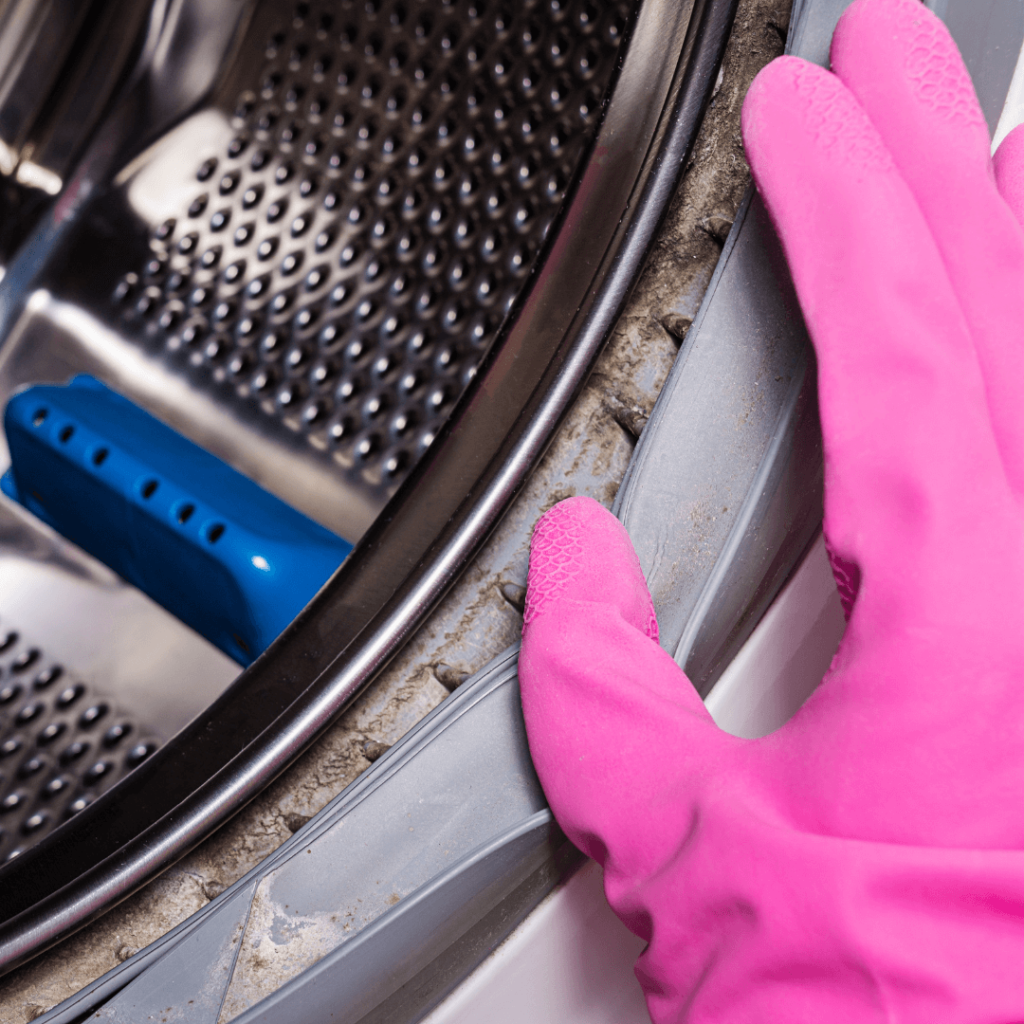
3. Detergent Pods or Tablets
Pods or detergent tablets are the most recent innovation in the laundry detergent market. They are pre-measured single-use packets that contain concentrated detergent, and sometimes even fabric softener.
Advantages:
- Pre-Measured: Pods are convenient because they are already measured out. No guesswork or measuring cups needed.
- Compact: They take up very little space and are easy to store, which makes them perfect for those with small laundry areas.
- Minimal Waste: Pods reduce the amount of wasted detergent, as you won’t be pouring out too much or too little.
Disadvantages:
- Costly: Pods and tablets tend to be the most expensive option of the three. You’re paying for convenience.
- Not Customizable: Since pods are pre-measured, you can’t adjust the amount of detergent based on your load size. You have to use an entire pod regardless of how big or small the load is.
- Potential for Misuse: Pods need to be handled carefully as they can burst open if punctured, leading to detergent spills.
Choosing the Right Detergent for Your Washing Machine
Now that we’ve covered the types of detergents available, the next step is to match the detergent to your washing machine type. Washing machines come in two primary varieties: top-load and front-load. Each has different characteristics and requirements when it comes to detergent.
Detergents for Top-Load Washing Machines
Top-load washers are the traditional style of washing machine, where you lift the lid and add your clothes from the top. These machines typically use more water than front-loaders, and their washing action is different as they rely on an agitator or impeller to move clothes around in the drum.
Here’s what you should look for in a detergent for top-load washers:
- Powder Detergents Work Best: Due to the higher water levels in top-loaders, powder detergents have more room to dissolve and mix with the water. They’re also great at tackling large loads and heavily soiled clothes, which are common in top-loaders.
- High-Efficiency (HE) Detergents Not Required: Most top-load washers don’t require high-efficiency detergents, although there are HE top-loaders on the market. Standard powder or liquid detergents can be used in these machines without any issue.
- Don’t Overfill: Top-loaders tend to get overfilled with clothes, which can result in poor cleaning performance if too much detergent is used. Stick to the manufacturer’s guidelines for load size and detergent dosage.
Detergents for Front-Load Washing Machines
Front-load washers are more energy-efficient and water-efficient than top-loaders. These machines work by tumbling clothes in a small amount of water, making them gentler on fabrics while still providing a deep clean. Because front-loaders use less water, they require a special type of detergent.
Here’s what to look for in a detergent for front-load washers:
- High-Efficiency (HE) Detergent is a Must: Front-load washers use less water, so you need a detergent that produces fewer suds. High-efficiency detergents are specifically designed for this purpose. If you use regular detergent in a front-load washer, it can lead to excess suds, which can damage the machine and leave residue on clothes.
- Liquid Detergents Are Ideal: Liquid detergents are usually the best choice for front-load washers. They dissolve quickly, even in the small amount of water used by front-loaders, and are particularly effective at treating greasy or oily stains. Additionally, liquid detergents are less likely to leave residue compared to powders. However, be mindful that liquid detergents can contribute to mildew and mold buildup if not properly cleaned out after washing. To avoid this, regularly clean your washing machine, especially the door gasket, and leave the door open after each use to allow moisture to evaporate.
- Pods Work Well Too: If you’re looking for convenience, detergent pods are also a good option for front-load washers. Just be sure to choose pods that are labeled as high-efficiency to avoid creating too many suds.
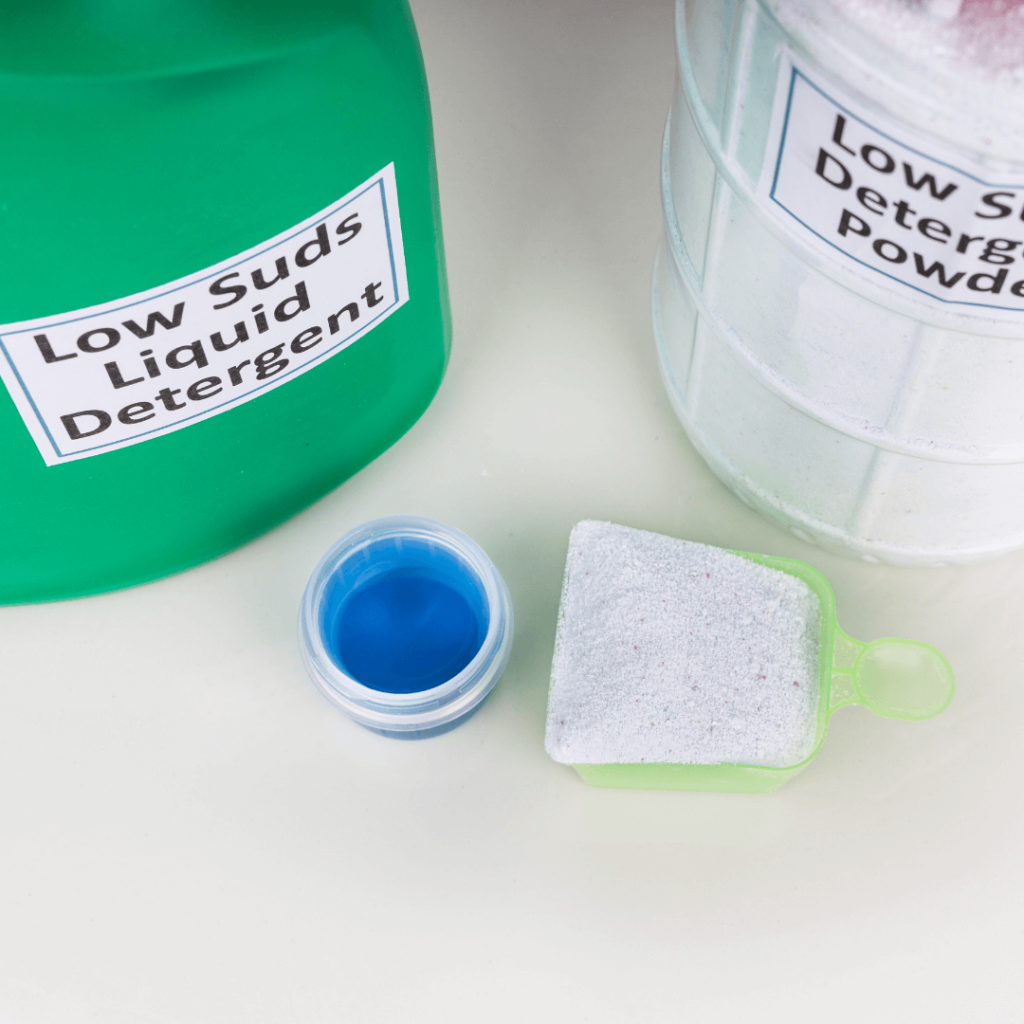
Eco-Friendly Detergent Options
If you’re concerned about the environment, you may want to look into eco-friendly detergent options. Many brands now offer detergents that are biodegradable, phosphate-free, and contain fewer chemicals that can harm aquatic life. Some even use recycled packaging to reduce waste.
Eco-friendly detergents tend to come in liquid or pod form and are compatible with both top-load and front-load machines. However, be sure to check if the product is HE-compatible if you’re using a front-load washer.
Final Thoughts: Which is the Best Detergent for Your Washing Machine?
The best detergent for your washing machine ultimately depends on the type of machine you own and your personal laundry needs. Here’s a quick recap:
- For Top-Load Washers: Powder detergents are generally the most effective, but liquid detergents work well too. You don’t necessarily need an HE detergent unless your top-loader is labeled as such.
- For Front-Load Washers: Always use a high-efficiency (HE) detergent. Liquid detergents are ideal, but pods work well too for convenience. Just keep in mind the potential for liquid detergents to leave behind residue that could lead to mildew and mold, and take steps to keep your machine dry and clean.
- For Eco-Friendly Choices: Look for eco-friendly detergents that are biodegradable and phosphate-free. These are available in liquid and pod forms and are suitable for both top-load and front-load washers.
When you match the right detergent to your washing machine, you’ll not only extend the life of your machine but also get cleaner, fresher laundry every time.
Click here for more guides.
You May Also Like
- How to Choose the Right Refrigerator Size for Your Home?
- Why Is My Washing Machine Not Draining Water?
- Why You Should Deep Clean Your Washer Dryer Once a Year?
- Inverter or Non-Inverter Air Conditioner: Which To Buy?
- What is the Right Air Conditioner Horsepower for Your Home?
- 5 Tips to Buy an Air Conditioner in Malaysia

